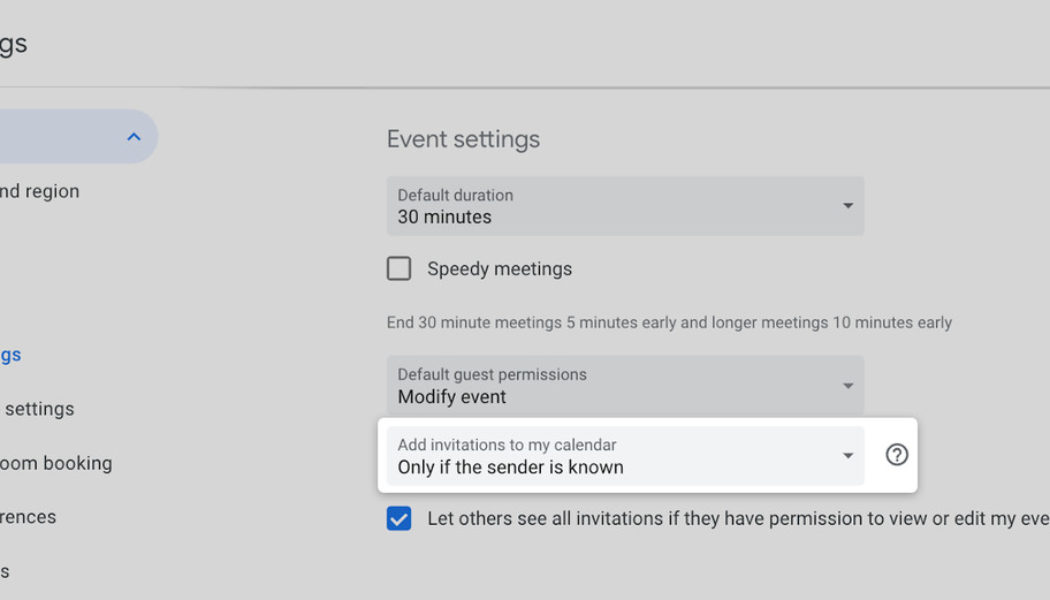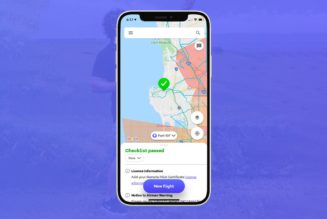Google Calendar’s new “known senders” option is supposed to make it easier to keep spam from clogging up your schedule. Toggling on the setting prevents invites from people you don’t know from automatically appearing in your Calendar. This way, Google Calendar will only automatically add invites from people in your contacts list, anyone you’ve interacted with through Workspace, and users in your company or organization.
If you’re familiar with Google Calendar, you’ll know that Google automatically adds events to your schedule based on the emailed invites you receive. Letting the floodgates open by allowing Google Calendar to add events received by “everyone” could mean having a calendar infested with fake and annoying events. While there’s technically a workaround for this, Google has made it pretty inconvenient — it involves disabling automatic event adding altogether, which means you have to respond to each invite.
:no_upscale()/cdn.vox-cdn.com/uploads/chorus_asset/file/23889007/google_calendar_spam_setting.png)
Google promised a fix for this all the way back in 2019, and now the company has added this solution. You can turn on the new filter by navigating to your Google Calendar settings and choosing Events Settings. From here, select the Add invitations to my calendar dropdown and choose Only if the sender is known.
Google says this setting doesn’t prevent you from receiving spammy invites, however. You can keep those from appearing in your Calendar by just not accepting them. On a support page, Google notes that choosing this setting may reveal to a sender that you don’t have them in your contacts list (if that matters to you).
This isn’t the only small but helpful change Google has made to its Workspace apps as of late. Last month, Google tweaked Calendar invites to make them easier to read and rolled out a revamp of Gmail. In an update last year, it also addressed a loophole that let people store spammy or abusive shared folders on other users’ Drives.









